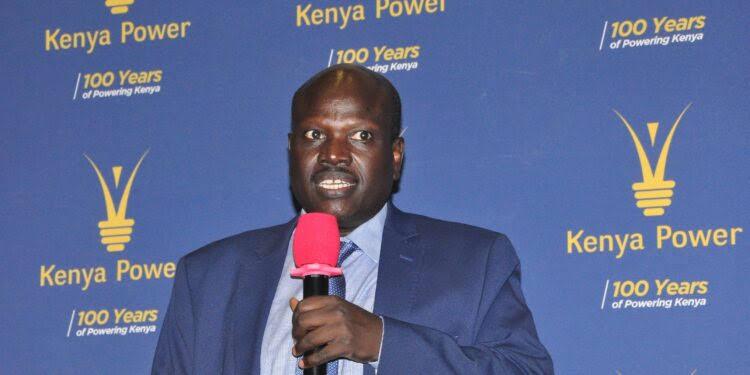
BY HON SALAH MAALIM ALIO
The pastoralist communities of Kenya have long been the custodians of our arid and semi-arid lands, playing a critical role in our nation's socio-economic fabric.However, they remain among the most vulnerable and marginalized grappling with systemic challenges that stymie their potential.
The upcoming 4th Pastoralist Leadership Summit (PLS) in Wajir, under the theme "Unlocking Policy and Financing Bottlenecks in Pastoralist Counties in Kenya," organised by Dryland Learning and Capacity initiative-DCLI,Pastoralist Parliamentary Group,FCDC, State Department of ASALS, Interpeace among others a timely opportunity to address these challenges.
As the Chair for the Land Sector Forum under the Frontier Counties Development Council and a County Executive Member overseeing lands, urban development, and circular economy and solid waste management, I am honored to contribute to this critical dialogue. The summit's focus on policy, financing, and unlocking the full potential of pastoralism couldn't be more urgent.
The Unfulfilled Promise of Pastoralism
Pastoralism contributes significantly to Kenya's economy, accounting for more than 70 per cent of the Kenyan Landmass and 10 per cent of GDP and sustaining millions.Yet, the sector operates below its potential due to policy misalignments, inadequate infrastructure, and limited access to financing.
Challenges such as land tenure insecurity, climate shocks, and insufficient investment in social services continue to exacerbate poverty and inequality in pastoralist regions.
The Pastoralist Leadership Summit provides a forum to confront these issues head-on.
By fostering dialogue between the two levels of Government,policymakers, development partners, and community leaders, we can craft sustainable solutions that align national priorities with the aspirations of pastoralist communities.
Addressing Financing Bottlenecks
One of the primary bottlenecks in pastoralist development is financing.
Despite the existence of devolved funds and international donor support, pastoralist counties struggle to attract adequate investment.
This stems from a perception of high risk and low returns, compounded by weak institutional frameworks.
To unlock financing, we must first build trust and transparency in our governance systems.
This includes enhancing accountability mechanisms, strengthening capacity at county levels, and engaging communities in decision-making processes.
Moreover, innovative financing models, such as blended finance and green bonds, can be explored to fund critical infrastructure, climate resilience projects, and social services.
Unlocking Policy Challenges
Policy remains the bedrock of development. For pastoralist counties, policies must be inclusive, context-specific, and geared toward long-term resilience.
Land tenure reforms, for instance, are crucial in ensuring pastoralists have secure access to grazing lands and water resources.
Similarly, policies that promote value addition in livestock production, enhance market access, and incentivise private sector investment are key to unlocking economic potential.
The formation of a Livestock Development Authority is a priority that should have been addressed at Independence.
Additionally, the integration of climate adaptation into county development plans is non-negotiable.
Pastoralist regions are on the frontlines of climate change, experiencing prolonged droughts and resource conflicts.
Policy frameworks must prioritize sustainable land management, afforestation, and renewable energy projects to mitigate these impacts.
The Role of Leadership
Leadership will be a defining factor in the success of these interventions.
The 4th Pastoralist Leadership Summit provides a platform for leaders to reaffirm their commitment to addressing the unique needs of pastoralist communities.
Collaboration between county governments, the national government, and development partners will be essential in driving this agenda.
As leaders, with more than 106 MPs in the National Assembly under the auspicious of Pastoralist Parliamentary Group-PPG national policies issue should be dealt with easily.
We must also champion the inclusion of marginalised voices, particularly women and youth, in decision-making processes.
Their perspectives are invaluable in crafting holistic and sustainable solutions.
A Vision for the Future
The vision for pastoralist counties should be one of transformation.
By 2030, we should aspire to see these regions as hubs of economic growth, environmental sustainability, and social cohesion.
Achieving this will require bold decisions, innovative solutions, and unwavering commitment.
The 4th Pastoralist Leadership Summit is not just another summit; it is a call to action.
It is an opportunity for us to rethink our strategies, forge new partnerships, and chart a path toward a brighter future for pastoralist communities.
As we convene in Wajir, let us remember that the success of our pastoralist counties is not just their success—it is Kenya's success.
In conclusion, I urge all stakeholders to actively participate in this summit and contribute to shaping a legacy of resilience and prosperity for our pastoralist regions.
Together, we can unlock the policy and financing bottlenecks that have held back these vital communities for far too long.
The writer is Hon.Salah Maalim Alio, Chair-Land Sector Forum-LSF-Frontier Counties Development Council-FCDC and CECM Lands, Housing, Urban Development, Circular Economy, Solid Waste Management and Sanitation-County Government of Mandera













